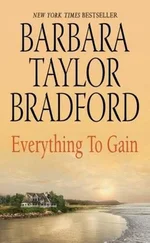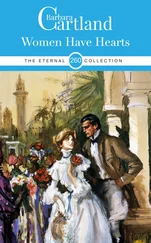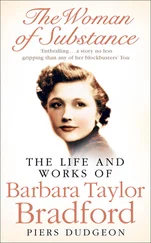I love you with all my heart and soul and mind, and I pray to God that one day we will be reunited in Eternity.
I kiss you, my darling.
Paul
Emma was motionless in the chair, clutching the letter, the tears seeping out of her eyes and rolling silently down her pale cheeks. She saw him in her mind’s eye, tall and handsome, his deep violet eyes laughing, and she remembered him as he wanted her to remember him. She thought of the years and the joy and love he had given her. And she forgave him, now understanding, and with great compassion, both his dilemma and his motives.
At the beginning of October, Mel Harrison took a four-engined ‘C Class’ Qantas flying boat from Sydney to Karachi, and there boarded an English aeroplane that provided the link to Great Britain. Several days later he arrived in London. His purpose: to see Emma and present Paul McGill’s will to the solicitors who handled the McGill legal work in England and Europe.
Emma, austerely dressed in black, appeared wan and fragile, yet she was composed when she arrived at Price, Ellis, and Watson for the reading of Paul McGill’s last will and testament. Winston, Frank, and Henry Rossiter accompanied her.
‘Paul made you the executrix of his estate,’ Mel informed her as she sat down. She was taken by surprise, but she simply nodded, at a loss for words.
There were bequests to servants, to old and loyal employees, and a two-million-pound trust fund had been created to provide for his wife and son during their lifetimes. Upon their deaths it was to go to charity. His entire estate he had willed to Emma in perpetuity, passing to Daisy upon her death, and from Daisy to her progeny. To Emma’s astonishment Paul had left her everything he owned, holdings worth well over two hundred million pounds. He had made her one of the richest women in the world and their daughter the heiress to a great fortune. But the thing that moved Emma the most was the fact that Paul had accorded her the respect and consideration generally reserved for a man’s legal widow and not his common-law wife. In death, as in life, Paul had declared his devotion and love for her, had acknowledged her to the whole world. And into her hands had passed the McGill dynasty for safekeeping.
Emma’s grief was a mantle of iron, but slowly she came to grips with her heartache. In all truth, her sorrow did not really lessen and she missed Paul and yearned for him constantly, but she took control of her emotions, and as the weeks passed she began to function like her old self. Also, her anguish was muted by the circumstances of her life and the world crisis which had developed.
She was beset by the most pressing problems as England plunged into the European conflict, and consequently her energies were taxed to the fullest, leaving little time or strength for self-indulgences. Her sons joined the forces, Kit enlisting in the army, Robin in the Royal Air Force.
Elizabeth, who had enrolled at the Royal Academy of Dramatic Art in the summer of 1939, was quietly married to Tony Barkstone during the Christmas holidays. Although Elizabeth was only eighteen and still too flighty to marry, in Emma’s opinion, she did not have the heart to object. Everyone had to grasp happiness when they could, especially in these terrible times, and, in spite of her misgivings, she gave her blessing. The young couple were obviously head over heels in love, and Emma approved of Tony, who was a friend of Robin’s from Cambridge and also a pilot in the RAF.
Despite the austerity, a spirit of gaiety prevailed at the wedding and all of the family were briefly reunited, with the exception of Edwina, who was still estranged from Emma, and Kit, who was unable to get leave. June, his wife of one year, came up to London for the occasion and stayed with Emma through the New Year. In January of 1940, Elizabeth dropped out of the Royal Academy to become a Red Cross nurse, much to Emma’s amazement. ‘But I thought you always dreamed of being a famous actress and seeing your name in lights,’ she exclaimed when she heard the news. ‘Oh, phooey to all that nonsense,’ Elizabeth quickly responded. ‘I feel I must be part of the war effort, too, Mummy.’ Emma was soon impressed by Elizabeth’s seriousness and her dedication to nursing, and she began to think the marriage would be the stabilizing influence her most wayward child needed.
The news grew more distressing by the day, and in March Emma contemplated sending Daisy to America to live with the Nelsons at their Hudson River estate. But the more she thought about it, the more she balked, acknowledging that the transatlantic crossing could be hazardous, and she decided that the child’s present location at boarding school in Ascot was probably the safest place.
As the year progressed, Emma threw herself into work with a vengeance, but she welcomed the distraction it offered. Henry Rossiter, who had handled some of her business in the past, became her financial adviser on a full-time basis, since she now had all the McGill holdings to supervise as well as her own. She was in constant touch with Mel Harrison in Sydney and Harry Marriott in Texas, and her days were longer and more arduous than ever before as her responsibilities increased. But she took everything in her stride. She was the dynamo she had been in her youth, and most especially during the First World War when she had also been left to cope single-handedly. If Emma’s face grew graver by the day, then so did every other face in England, for the country was held in the grip of fulminating desperation as Hitler’s blitzkrieg continued unabated.
Towards the end of May, just after his fifty-fourth birthday, David Kallinski came to London to discuss their mutual business interests with Emma. He was still a good-looking man and those penetrating blue eyes had not dimmed, although his hair was iron grey and he had thickened around the waist. His devotion to Emma had remained constant over the years and he was always concerned about her. To his relief, when she greeted him at the house in Belgrave Square, he immediately saw that her face had lost its gaunt look and her beauty was returning, and she had also put on a little weight. Later they were joined by Blackie, and after a light supper they adjourned to the library for coffee and liqueurs, their conversation revolving around the war.
‘Do you think we’ll be able to get the boys off the beaches in time?’ Emma asked, thinking not only of Kit, and Ronnie and Mark Kallinski, but of the thousands of other British troops stranded in Dunkirk.
‘If anybody can do it, by God, Winston Churchill can!’ Blackie asserted. He shifted in his chair and went on, ‘He’s assembled an armada the likes of which the world has never seen, albeit a motley one. But it’s united in one goal-getting our boys safely home to Deal and Ramsgate before they are annihilated by the Germans advancing across the Low Countries into France.’
‘I read they came from all over England to assist the Royal Navy’s destroyers,’ David interjected, puffing on his cigar. ‘Volunteers from all walks of life, with their rowing boats, sailing boats, fishing trawlers, yachts, pleasure steamers, and even barges. It’s the most wonderful display of patriotism and heroism I’ve heard of in my lifetime.’
Blackie nodded. ‘Aye, it is, David. Seven hundred vessels of all shapes and sizes, including the destroyers, of course. It seems the volunteers are picking up the men and carrying them out to the bigger ships that can’t get close enough to the beaches, while some are even ferrying the boys across the Channel on a round-the-clock basis. Enormously brave men, sure and they are, and indefatigable.’
‘How long do you think the evacuation will take?’ Emma inquired quietly, looking from Blackie to David with consternation.
Читать дальше
Конец ознакомительного отрывка
Купить книгу












